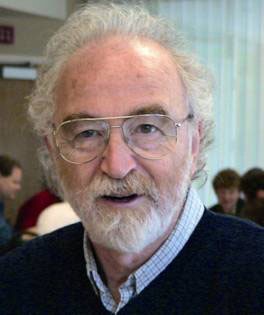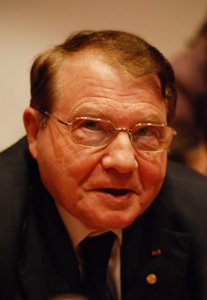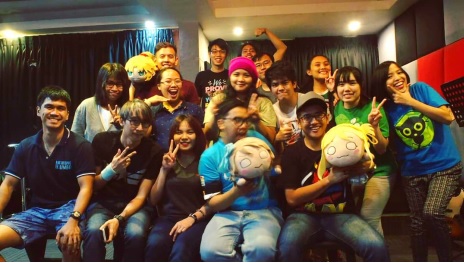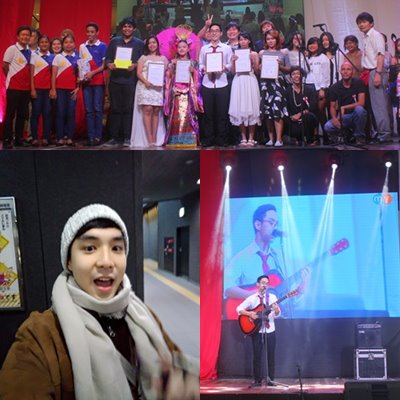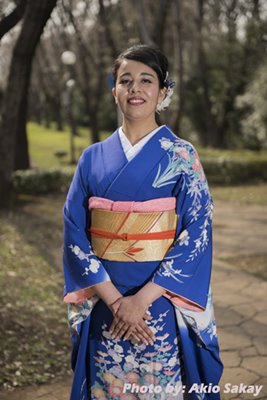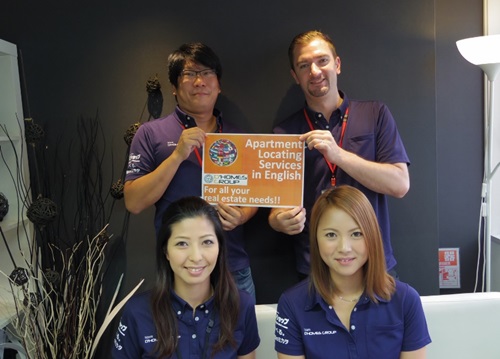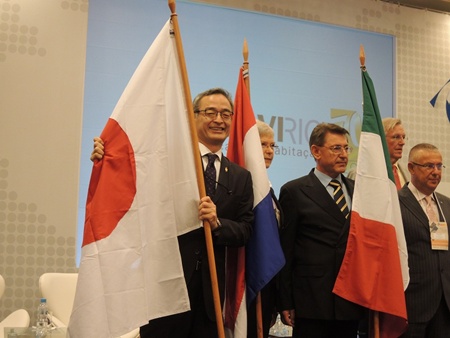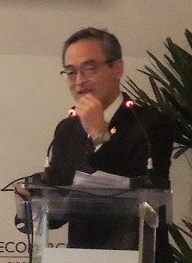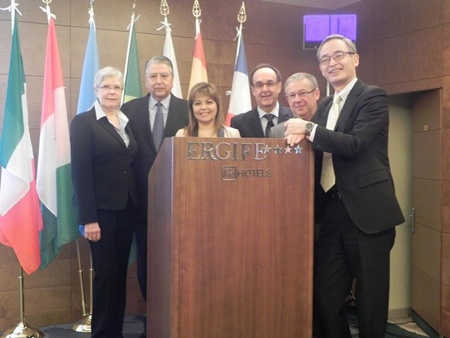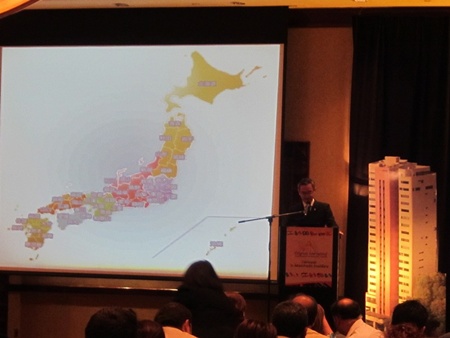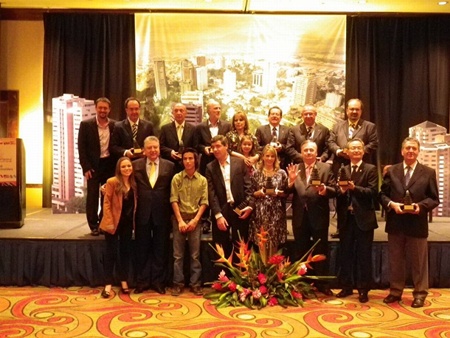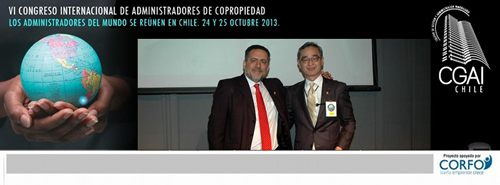Enjoying English at Osaka University - Interview with Leaders of "Foreign Language Drama Festival
- 2024/01/23 12:37

Enjoying English at Osaka University
- Interview with Leaders of the Foreign Language Department's "Foreign Language Drama Festival"
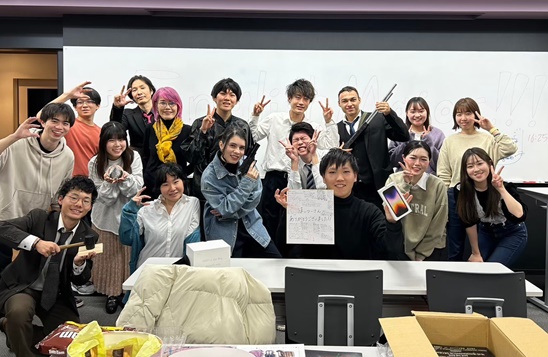
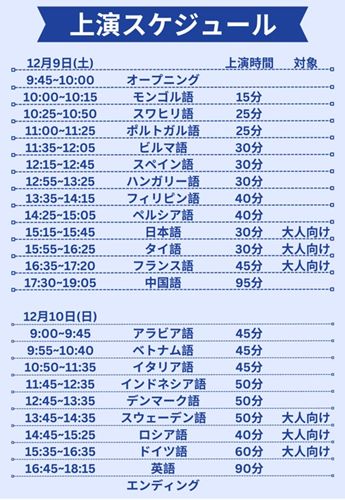
I visited Osaka University's "Language Drama Festival" held in December by the Foreign Language Department. This festival is a theatrical event where university students perform in various foreign languages, including Japanese. It's a tradition that has been ongoing since the Osaka School of Foreign Studies era.
The festival, features performances in 21 languages, with subtitles in Japanese on a large screen, making it enjoyable for everyone, even those who don't understand foreign languages.
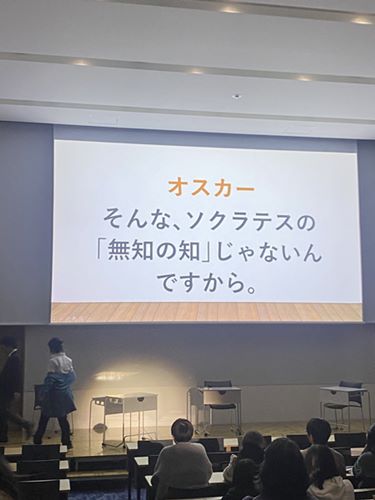
I interviewed two fourth-year English major students, Mr.Matsuba and a third-year student, Mr.Matsuzaki, who played key roles in directing, scripting, and coaching the English plays. They shared insights into the backstage, their passion for English drama, and some suggestions for English education.
The English plays faced challenges as they were revived after a 15-year hiatus last year. Organizing everything from scratch was demanding, especially since the festival is primarily for freshmen and sophomores. Despite the initial difficulties, the involvement of exchange students helped create a diverse and vibrant atmosphere.
Matsuba, with experience in a drama club and writing papers on American theater plays, led the first and second-year students in scriptwriting and technical support.
More and more international students are joining, and thanks to their personalities and the open atmosphere they bring, Japanese students are gradually becoming more comfortable expressing their personalities. Additionally, with the participation of returnees Japanese who spent their childhood abroad, everyone has been able to enjoy activities in an international setting.
While the English levels and educational backgrounds varied, surprisingly, it created a laid-back atmosphere that turned out well in the end.
In regular classes where the majority are Japanese students, there tends to be a lot of hesitation and passivity. This can negatively impact language learning. However, when returnees Japanese and international students join, even Japanese students educated in Japan can feel free to express themselves without worrying too much about what others think.
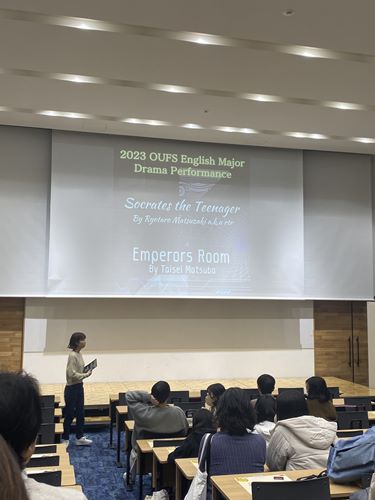
The plays focused on themes like "Socrates" and "Japan's future when English becomes the official language." Despite differences in language proficiency and educational backgrounds, the diverse group contributed to a lively and successful event.
They noticed that the characteristics of language majors reflected in their respective language drama groups. For instance, the Chinese group exhibited strong coordination, while the Russian group had a strict hierarchy. In contrast, the English drama group was more laid-back, resulting in both enjoyment and some organizational challenges.
Looking ahead, Matsuzaki, a third-year student, expressed plans to continue English drama activities beyond the Language Drama Festival. They aim to expand these activities during the university's "Summer Festival" at the Minoh Campus, fostering cultural exchanges with local communities.
The benefits of performing in foreign language play extend beyond enjoyment. The immersive experience allows participants to feel as if they are living in an English-speaking environment, providing a unique way to learn languages.
Matsuzaki encourages students not only to enjoy acting but also to explore the joy of writing scripts and creating stage productions. He believes expanding one's self-expression is essential for language learners.
They want to create works inspired by popular aspects of Japanese culture and unique mythology, with a desire to portray Japan as a society originally tolerant of foreign cultures. Looking ahead, they aim to establish a foreign language drama group within or associated with the university.
During their interview, the potential of foreign language drama expanded rapidly. Influenced by popular manga, there is a growing interest in Japanese culture and mythology even among people overseas. In the future, foreign language plays conveying Japanese culture may become more popular.
I hope that the dreams of Matsuba and Matsuzaki come true, leading to the creation of a foreign language drama group originating from the Language Drama Festival. Additionally, Osaka University's Minoh Campus provides a unique environment with a shared library and an event space where citizens and students can interact.
We hope that the Minoh Campus will become a hub for Osaka to communicate Japan to the world in foreign languages、welcoming the Osaka Kansai Expo in 2025. (GlobalCommunity, Editor-in-Chief, Kazumi Miyazaki)
https://www.instagram.com/oufs_gogekisai "Foreign Language Drama Festival" official Instagram
https://twitter.com/gogekisai "Foreign Language Drama Festival" official Twitter
https://www.instagram.com/ou_english_drama2023
Osaka Univ. "Foreign Language Drama Festival(English Major) Official Instagram
